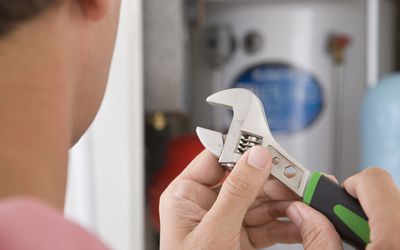Why buyers should always handle repairs
Edwin St. Aubin
Save yourself the headaches, and do what’s best for all parties involved — issue a buyer credit when repair issues arise
The inspector in your transaction calls out issues with the roof. Do you try to persuade the sellers to handle the repairsbefore the transaction closes, or do you issue the buyers a credit and let them handle it?
Here are two different scenarios that illustrate why this is frequently the best possible choice.
Of all the places to leak
I remember selling a home to an attorney client who had a small baby. The inspector called out a roof leak on the inspection report.The parties agreed that the seller would handle the roof repair.
In the first big rain after the closing, there was a leak — right on top of the baby’s head while she was sleeping in her crib. Needless to say, my buyer was seething. She immediately hired a roofer to repair the leak. Once she had the repairs completed and the bills in hand, she also sued the seller in small claims court.
On the day of the trial, the seller brought the roofer who had done the repairs. The seller’s contention was that he wasn’t liable since he didn’t do the work.
The judge disagreed and ruled that the seller wasresponsible for repairing the roof. He then ordered the seller to pay the buyer damages plus the court fees.
When the seller objected, the judge responded: “If the person you hired did substandard work, you have to work it out with him. The dispute is between the two of you. It was your responsibility as per the terms of the contract to make sure that the roof was repaired.”
Do you really want your sellers to deal with this?
I’m in the midst of handling some long-needed repairs to my brother’s home in Southern California, including replacing the roof.
Given that experience, I am even more convinced that letting the buyer handle their own repairs is the best move for everyone involved in the transaction.
- The first challenge is finding the right contractor, but where to look?
- How many bids should they obtain?
- How can they judge who will do the best quality work?
- Which brand of shingles will they choose?
- How will they handle cost overruns that can increase the cost of the job by as much as 33 percent to 50 percent. More importantly, who pays for it?
- Should they hire the roofer directly or hire a general contractor to oversee the project?
- If the seller does the work, will the buyer like the quality, the color and the product the seller picked out?
- Should the buyer even have any say?
- Is the warranty or repair on the roof transferable to the new buyer?
This is a lot to accomplish when you’re attempting to close a deal in 30-60 days.
Personally, we have had great luck with HomeAdvisorin terms of finding competent contractors to work on our properties. Even with a competent contractor, though, things can go wrong.
For example, we picked out a highly-rated shingle, but it didn’t meet city environmental requirements. That cost an extra $1,200 more than our best bid.
At the first inspection, the inspector decided that we had to install an additional six vents and do additional work where the addition joined the main house. (That work, by the way had passed inspection in 2007 when the addition was completed). That was another $1,500.
By the way, the city didn’t inform us, until we called for the final inspection, that we needed a carbon monoxide detector in the hall of the house. That delayed the final inspection another week.
Dealing with nit-picky physical inspection reports
Picky inspectors are a fact of life as are buyers who ask the sellers to take care of all repairs on the report, no matter how unreasonable they are.This typically results in a great deal of additional negotiationas everyone works through the list point-by-point.
Giving the buyers a credit to cover all the work on the inspection report is one of the easiest ways to avoid an often difficult negotiation over what should and should not be fixed.
Issues with buyer credits
Although it might be a good idea to give the buyers a credit toward doing the work, it can create problems with the lender.
Loan processors often view credits for work to be completed as a reduction in how much the buyer is placing down. The result is that a loan with 20 percent down that didn’t require private mortgage insurance (PMI),might be treated as a loan with less than 20 percent down. This could force the borrower to obtain PMI as well as requiring a higher interest rate.
Moreover, if it takes longer for the seller to complete the work through no fault of their own or if the rates increase on the buyer’s loan and the buyers no longer qualify, then the whole deal can fall apart.
One solution is to have the closing agent escrow the funds for repairs and then release them when the buyer presents documentation that the work has been completed.
If you must do major repairs before closing
Sometimes major repairs must be handled prior to closing. When this is the case, search for competent professionalsto handle the work, make sure the seller has the receipts, and if at all possible, make sure there is a warranty that will transfer to the buyers when the transaction closes.

